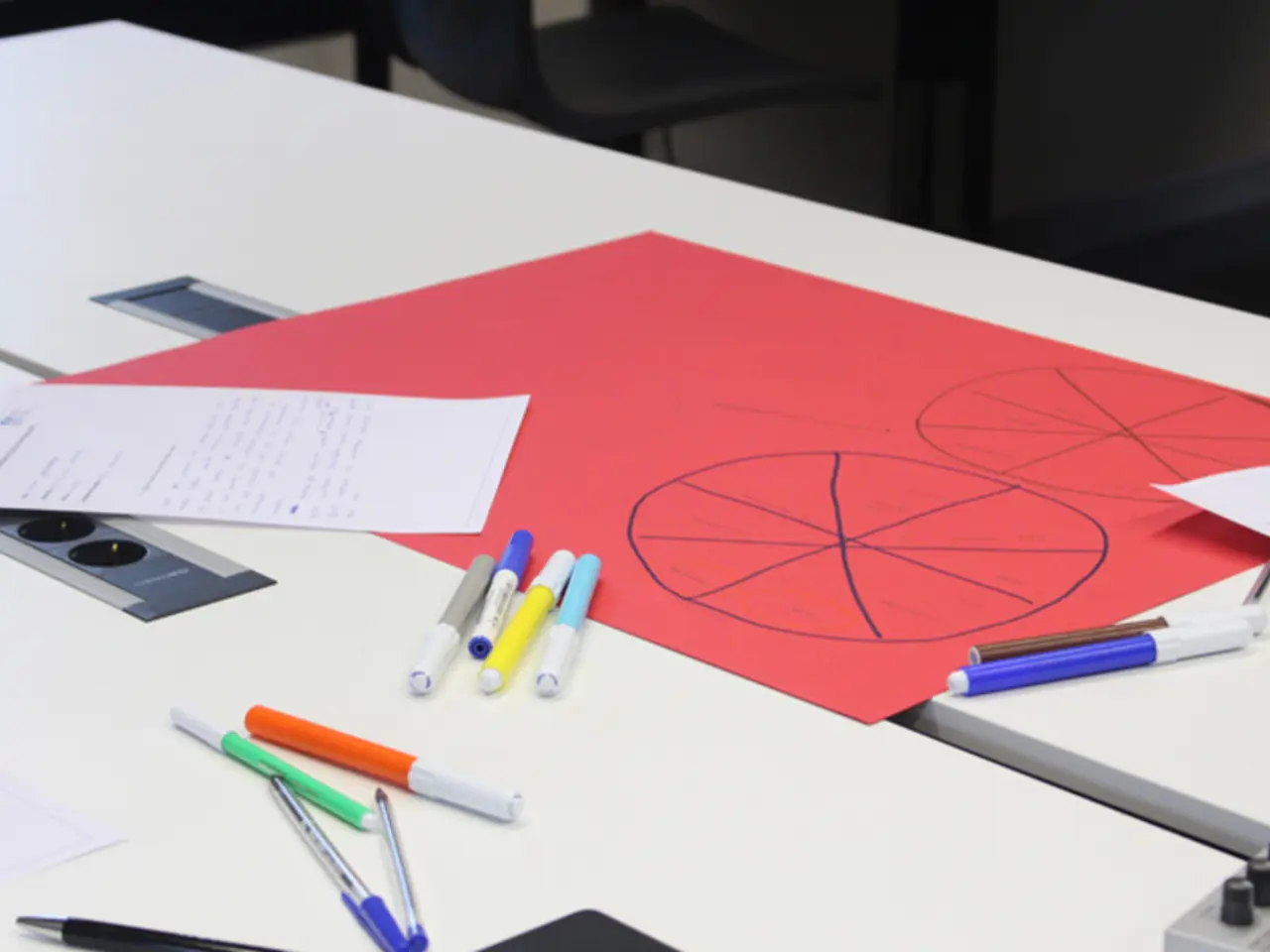Decline in Mental Acuity Remains Unaddressed by Society at Large
In today's fast-paced world, a growing concern is the decline in cognitive skills, a trend that is increasingly being attributed to societal and lifestyle changes. A recent study suggests that excessive screen time, reduced reading habits, and shifts in media consumption are primarily responsible for the decline in attention, reasoning, and problem-solving abilities, particularly among younger generations [2].
This cognitive decline has profound implications, including reduced productivity, impaired problem-solving capacity, and overall lowering of intellectual functions essential for personal and professional success. The decline may also contribute to increased risks of late-life cognitive impairments such as dementia and depression [3][4].
The root causes of this decline are multifaceted. Excessive screen time and social media use lead to diminished verbal and cognitive skills by reducing deep focus and increasing distractions [2]. The shift away from reading traditional literature towards digital content also undermines the development of critical thinking abilities [2]. Age-related cognitive decline, where older adults experience declines partly due to reduced use of high-level information-processing skills in certain careers and potentially insufficient lifelong training or cognitive engagement, is another factor [4]. Psychosocial factors, such as community support and reduced loneliness, can influence cognitive function positively in old age, reducing cognitive impairment risk [1][5].
However, there is hope. Individuals can combat this trend by limiting screen time and managing digital media use more carefully to reduce distractions and promote better attention and cognitive control [2]. Increasing engagement with reading and intellectually stimulating activities, such as puzzles, problem-solving tasks, and learning new skills, can strengthen cognitive reserve [2][4]. Leveraging community-based services and social support can foster positive cognitive beliefs and emotional resilience, which can enhance cognitive function and delay impairment onset in older adults [1]. Maintaining active caregiving or intergenerational interactions may provide mental stimulation and social connectivity, reducing cognitive decline risks [5]. Pursuing lifelong learning and skill development, especially in mid- and late-life, can offset declines associated with aging or occupational shifts [4].
The decline in cognitive skills appears to be driven more by environmental and behavioral factors than fixed biological aging alone, suggesting that proactive lifestyle choices and social engagement are key levers to mitigate this concerning trend [2][4][1]. Employers report difficulty finding workers who can concentrate deeply or adapt quickly, highlighting the need for individuals to take action to preserve their cognitive vitality.
The brain, it seems, is not designed for the constant barrage of information and distractions that modern life presents. Sleep, essential for the brain to consolidate memory, clear waste, and reset, is often sacrificed for more screen time. The stress response system, which didn't evolve for long-term activation, can lead to cognitive circuit frying. Smartphones, social media, and endless notifications compete for our attention, leading to fragmented multitasking.
The modern diet is rich in calories but poor in brain-supportive nutrients, such as omega-3 fatty acids, B vitamins, magnesium, and antioxidants. Cognitive decline doesn't scream, it whispers, and is gradual, but not irreversible with better habits, renewed priorities, and brain-supportive tools.
Education systems, too, are under scrutiny. Compressed curricula, constant testing, and screen-based learning can lead to struggles in retaining complex material. The decline of long-form thinking, such as reading novels or writing essays, leads to the brain losing endurance.
However, it's important to remember that the brain is plastic and can change and adapt throughout life. Supplements like phosphatidylserine, bacopa, or lion's mane may help support mental clarity, memory, or stress response. Prioritizing sleep, feeding your brain with whole foods, healthy fats, and micronutrients, moving often, limiting screen time, practicing focus, and supplementing wisely can reclaim cognitive vitality.
In conclusion, the decline in cognitive skills is a complex issue, but one that can be addressed through proactive lifestyle choices and social engagement. By limiting screen time, engaging in intellectually stimulating activities, leveraging community support, pursuing lifelong learning, and prioritizing brain health, individuals can combat this trend and preserve their cognitive vitality.
- The decline in attention, reasoning, and problem-solving abilities is a growing concern, often linked to societal and lifestyle changes.
- This cognitive decline can significantly impact productivity, problem-solving capacity, and overall intellectual functions crucial for personal and professional success.
- Excessive screen time and social media use are primary contributors to this decline, as they reduce deep focus and increase distractions.
- The shift away from reading traditional literature towards digital content undermines the development of critical thinking abilities.
- Age-related cognitive decline is another factor, where older adults experience declines due to reduced use of high-level information-processing skills in certain careers or insufficient lifelong training or cognitive engagement.
- Psychosocial factors, such as community support and reduced loneliness, can influence cognitive function positively in old age, reducing cognitive impairment risk.
- Individuals can combat this trend by limiting screen time and carefully managing digital media use to reduce distractions and promote better attention and cognitive control.
- Increasing engagement with reading and intellectually stimulating activities can strengthen cognitive reserve.
- Leveraging community-based services and social support can foster positive cognitive beliefs and emotional resilience, which can enhance cognitive function and delay impairment onset in older adults.
- Maintaining active caregiving or intergenerational interactions may provide mental stimulation and social connectivity, reducing cognitive decline risks.
- Pursuing lifelong learning and skill development, especially in mid- and late-life, can offset declines associated with aging or occupational shifts.
- The brain needs sleep to consolidate memory, clear waste, and reset, but it is often sacrificed for more screen time.
- Supplements like phosphatidylserine, bacopa, or lion's mane may help support mental clarity, memory, or stress response.
- Prioritizing sleep, feeding your brain with whole foods, healthy fats, and micronutrients, moving often, limiting screen time, practicing focus, and supplementing wisely can reclaim cognitive vitality.




